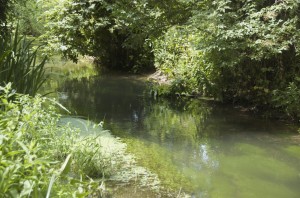This past weekend, I attended the Wild and Scenic Film Festival in Boston, hosted by e-inc. Though I had already attended Maynard’s top notch version of the Festival a few weeks back, I was pleasantly surprised by how little overlap there was between films at the two events. That said, one of the films I was able to see in Boston was Spoil, put out by The ILCP, EP Films and Pacific Wild. While I tend to consider myself someone who’s current with pressing environmental issues, I must admit – I was stunned. The potential devastation taking place in one of our planet’s most majestic and critical natural habitats, the Great Bear Rainforest, needs immediate attention. One of the largest tracts of temperate rainforest left in the world, the Great Bear Rainforest in British Columbia, Canada, is home to a plethora of cohabitant species ranging from whales and wild salmon to wolves and bears. The bear, given the Rainforest’s name, holds a special place to those who have lived in harmony with the forest for thousands of years. The unique “Spirit Bear”, a black bear born white due to a recessive gene, roams these lands and is known for its beauty and rarity, yet today numbers only in the low hundreds.
The Spirit Bear, along with the other species who call the Great Bear Rainforest home, are in constant threat. Not only from continued trophy hunting, but now from a proposed Enbridge crude oil pipeline stretching across Canada bringing tar sand oil from Alberta to the North Coast of British Columbia for export to China and other countries. Supertanker ships, that carry upwards of 2 million barrels of oil, would be navigating through tight, delicate and dangerous rocky terrain in order to reach a shipping port bound for Pacific travel. The Exxon Valdez faltered in similar waters in Prince William Sound and damage is still taking its toll on wildlife and natural habitat.
In the case of the Great Bear Rainforest, as with any struggle between business and conservation, it’s critical to understand the balance between energy, economic growth and the importance of natural ecosystems. As we continue to demand greater amounts of energy and as countries – like China – continue to develop and grow, we face serious environmental challenges. The Alberta tar sands are an example of how far we’re willing to go to obtain fossil fuel reserves while destroying everything in our path; the tar sands extraction process is one of the most environmentally damaging and GHG-intensive to-date. The risks are getting higher and fragile and necessary ecosystems like the Great Bear Rainforest are under attack with continued and unabated development. To learn more about the current challenges facing the Great Bear Rainforest, please visit Pacific Wild’s website.

